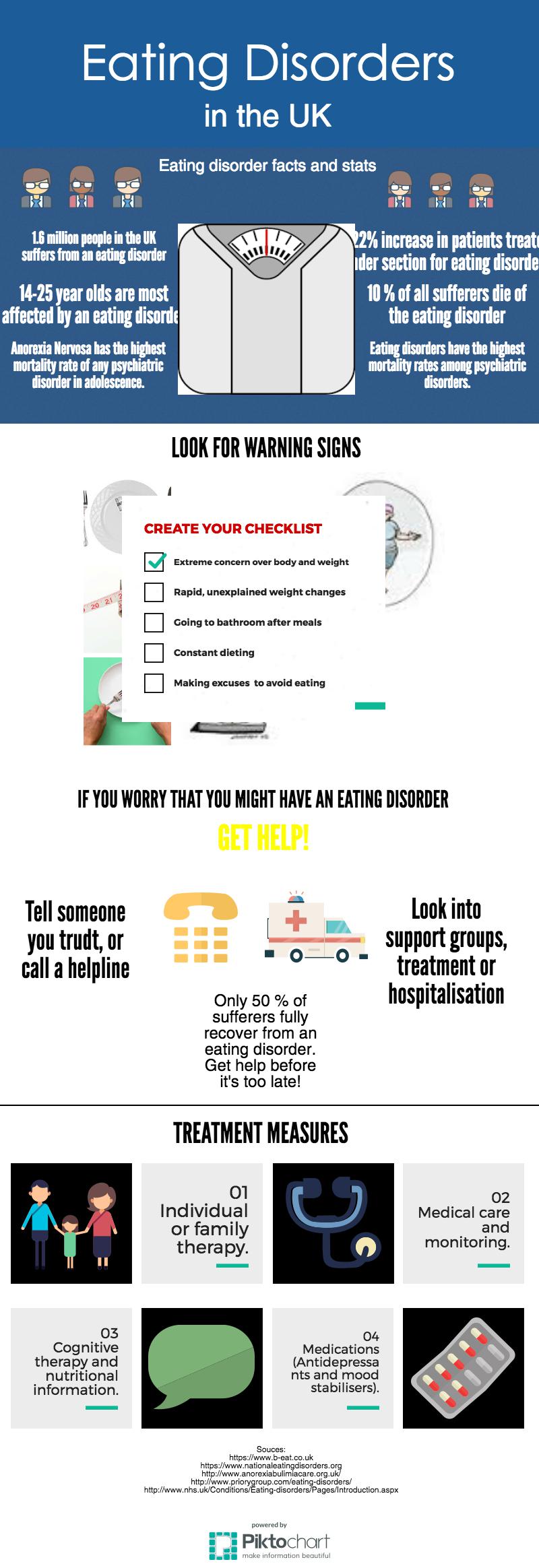The Eating Disorder Awareness Week has revealed an increase in admissions and deaths in the UK resulting from an eating disorder. Can you fully recover from an eating disorder?

After eight years of being away, Katie is back. She wasn’t kidnapped from her parents. She didn’t run off and travel the world, or marry a prince far away. Katie had anorexia.
It all started with a Barbie doll. Katie was playing in her room by herself, where she noticed the doll’s body. At eleven years, she wanted that shape.
“I was quite socially awkward and a bit of an outsider in school,” says Katie. “Barbie seemed perfect and she could do anything. I wasn’t a good at a lot of things. But I figured out that I was a good anorexic.”
Having an eating disorder is not uncommon in the UK. According to Beat, the UK’s leading charity supporting anyone affected by eating disorders, more than 1.6 million people in the UK suffer from an eating disorder.
However, not many are aware of how prevalent eating disorders actually are. As a result the campaign “Eating Disorder Awareness Week” has going on for many years, and is now occurring this week.
“One of the main things that people need to realize is that eating disorders are serious,” says Dr. Gail Williams, a specialist in mental illnesses and eating disorders. “It’s affecting a lot of people, both very young children and grown men and women. I don’t think it’s been said enough how many people are suffering from eating disorders or how devastating the outcome can be.”
Today Katie is 20 years old and studying at Cardiff University. She is in full recovery, although it took her eight years to get that far.
 For Katie, it was a specific moment that changed everything for her and made her want to be free of her eating disorder.
For Katie, it was a specific moment that changed everything for her and made her want to be free of her eating disorder.
“I was brushing my hair one day, when suddenly I was holding a fistful of hair. Even though the control of getting thinner was addicting, I realised what I had done to myself. After being in control for eight years, I actually wanted to get better.”
Although it is possible to recover fully from an eating disorder, for many people suffering from an eating disorder have dire consequences. Statistics show that 10 % die as a result of their eating disorder making eating disorders the mental illness that kills the most people.
According to the Office of National Statistics, the number of recorded deaths resulting from an eating disorder is increasing. In England and Wales, 17 deaths were recorded in 2014 and 28 in 2015.
“Some people die from the eating disorder itself. But we are also seeing a rise in people taking their own lives. You need to get help if you suspect having this illness,” says Dr. Gail Williams.
Even though the UK is seeing an increase in hospital admissions due to eating disorders every year, it is estimated that three out of ten suffering from an eating disorder are not referred for treatment.
According to a survey by Beat more than half didn’t feel that their GP understood the importance of intervention. Only a third felt that their GP knew how to help them.
Scroll and click on the picture to see: “What Anorexia does to your body?”
Katie had the same experience:
“I can completely relate to this. My mom took me to the GP when she suspected something was wrong. The GP took a quick look at me and then he decided that I was fine. By then I had lost 20 pounds and was living of five almonds and an apple a day. I was not fine. It took a long time before someone took us seriously.”
It often takes time and persistence to get help for someone suffering from an eating disorder. Because unfortunately, eating disorders are often labelled as simply something young girls do to lose weight and feel better about their looks.
But this is often not the case. Many of these people who try to get help actually need it to be able to recover and live a healthy life.
“It’s important to understand that there’s often underlying issues. It’s not always about food or losing weight,” says Marg Oaten from the volunteer based charity organisation SEED, which is a group of ordinary people with first-hand experience into eating disorders.
Luckily, there are many other places than the GP where you can turn to for help – from telephone help-lines to in-person support groups. And anyone can take advantage of these offers.
“If your loved one has an eating disorder, you need to seek help. It’s important to gather a network of support. As a parent, try to avoid letting them be alone as much as possible. The most important thing is being able to speak to others that are going through the same,” says Marg Oaten.
Scroll and click on the picture to see. “What Bulimia does to your body?”
For Katie, the help she got from her family wasn’t enough. She also went to support groups, used several help lines when feeling helpless and saw a specialist for eating disorders.
While some sufferers never get over their eating disorder, with the help Katie has gotten, she managed to recover and is now living an almost normal student life.
“Today my relationship with food is pretty normal. After years of treating my body as if it was the enemy, we’ve finally made peace. It’s just a shame that it took me eight years, hair falling out and a hell of a lot of control issues, denial and tears to get here,” says Katie.
Unfortunately, not everyone is as lucky as Katie.
With the compelling statistics, and with one in six girls feeling ashamed of how they look, there is still a long way to go.
“We see more young girls being affected by eating disorders now, and the fact is that only around half fully recover,” says Dr. Gail Williams.
(Katie is a pseudonym, out of respect for privacy).
Watch the video to see the most common myths about eating disorders
